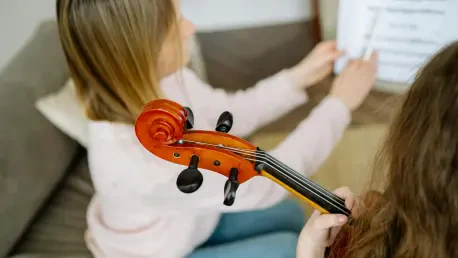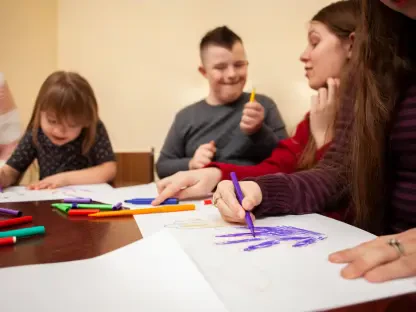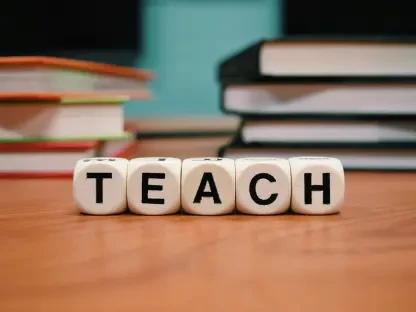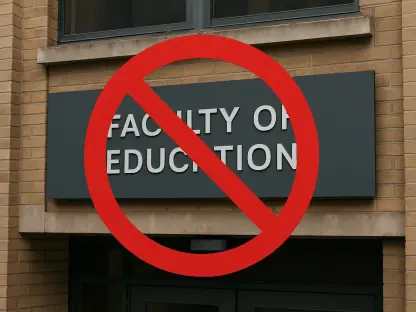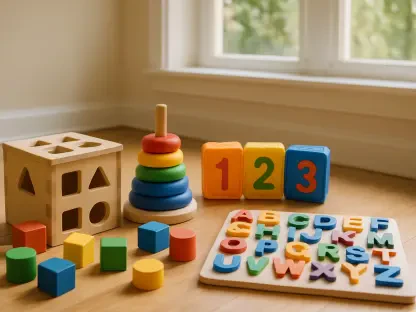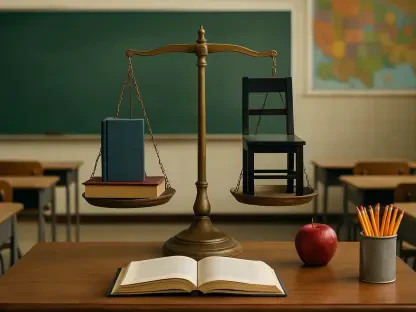In a small Northeastern community, a heated debate has emerged over recent school district changes that have left parents questioning the future of music and arts education for their children, sparking intense discussions at local meetings. At a recent board meeting, families voiced deep concerns about shifts in teaching assignments, particularly within the music department, alongside reductions in library hours and art class durations. These modifications, rolled out at the start of the current school year, have ignited frustration among parents who feel blindsided by the lack of communication from the administration. Many worry that such alterations could undermine the critical role that creative disciplines play in fostering skills like critical thinking and emotional expression. This growing tension between administrative decisions and community expectations sets the stage for a closer examination of whether these changes are enhancing educational efficiency or inadvertently diminishing vital programs that shape well-rounded students.
Shifting Priorities in School Scheduling
The core of the controversy lies in the reassignment of specialized educators to roles that some parents believe do not fully utilize their expertise. A prominent example is a highly regarded strings music instructor with a master’s degree in orchestra conducting, who previously taught fourth through sixth-grade musicians. This educator has now been moved to teach general music to kindergarten through third-grade students. Parents argue that this shift not only underutilizes the teacher’s advanced skills but also deprives older students of specialized instruction at a formative stage. The broader implications are troubling for families who see music and arts as essential components of education, nurturing discipline and creativity. Many in the community fear that such reassignments signal a deprioritization of these subjects, potentially stunting students’ development in areas that standardized curricula often overlook, and they are calling for a reevaluation of how teacher roles are assigned.
Beyond individual reassignments, the district’s broader scheduling adjustments have also drawn scrutiny for their impact on arts programs. Art class durations, for instance, have been standardized to just 30 minutes to fit within a rotational cycle, a move intended to ensure consistent exposure for students from kindergarten through sixth grade. While the intent is to balance access across subjects, parents contend that the shortened time limits the depth of artistic exploration and hands-on learning. Library hours have faced similar cuts, further restricting opportunities for students to engage with creative resources. This pattern of reduction, coupled with the reassignment of specialized staff, has fueled a perception that the district is prioritizing logistical convenience over the quality of education in expressive fields. The community remains vocal, urging administrators to consider the long-term effects of these changes on student growth and engagement in non-core subjects.
Administrative Rationale Behind the Changes
District officials have defended the recent modifications as necessary steps toward improving overall program consistency and operational efficiency. According to the superintendent, these adjustments stem from an annual review conducted by building principals across the eight schools in the district. The goal is to balance instructional responsibilities, reduce travel time for teachers between buildings, and minimize disruptions to classroom schedules. For instance, reassigning certain music educators allows them to provide individual lessons across multiple elementary schools while enabling other staff to expand their reach. The standardization of art class durations is also framed as a way to ensure equitable access to specials for all students. Administrators emphasize that these decisions are data-driven, taking into account enrollment trends and instructional priorities to create a cohesive educational experience for everyone involved.
However, the administrative focus on efficiency has not fully alleviated parental concerns about the quality of specialized education. While the district argues that these changes optimize resources and provide a balanced curriculum, critics point out that the benefits seem to come at the expense of depth in music and arts instruction. The reassignment of a seasoned orchestra educator to younger grades, for example, is seen as a misallocation of talent that could hinder the progression of students ready for advanced training. Additionally, the lack of prior dialogue with families about these shifts has deepened mistrust, with many feeling that their input was neither sought nor valued. This disconnect highlights a crucial gap between the district’s logistical goals and the community’s expectations for tailored, high-quality education in creative disciplines, raising questions about how best to bridge these differing perspectives.
Balancing Efficiency and Educational Value
Looking back, the debate within the Northeastern School District reflected a complex struggle to reconcile systemic improvements with the preservation of specialized programs. The administration’s efforts to streamline scheduling and enhance consistency across schools were met with resistance from parents who championed the unique value of music and arts education. Their concerns centered on the reassignment of expert educators and reductions in program time, which they believed compromised student development in critical areas of creativity and expression. Moving forward, a potential path to resolution could lie in fostering greater transparency through regular town halls or advisory committees where families and educators collaborate on such decisions. Additionally, exploring hybrid models that maintain specialized roles while addressing scheduling needs might offer a compromise. Ultimately, prioritizing open communication and innovative solutions could ensure that efficiency does not overshadow the irreplaceable benefits of a robust arts education.
